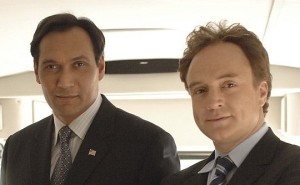What Exactly Is The Strategy Role?
(This one’s a longer read, perhaps save it for later or have a read at home. Cheers, Adam)
Hey Adam,
Wondering if you can help me – my organisation has created a Strategy role and put me in it. I’ve got some generic KRAs, but a lot of room to design my own ‘value-add’. Would appreciate your view on what you see the value of such a role is.
OK, let’s talk about what the role isn’t to start with.
The strategy role is not there to take sole accountability for delivering strategy!
Do not take on this accountability alone, either explicitly, or implicitly. It’s going to be tempting as you’re going to want to show that you’re valuable, and the core areas will gladly hand you accountability for the future to get it off their plate! It will seem like a win/win, but this degenerates into a lose/lose every time as you’ll be crying “no one here thinks of the future”, they’ll be crying “Strategy doesn’t understand I’ve got real numbers to hit here”, and the CEO will be crying “why can’t we all just get along!”
Strategy is delivered by those that either currently make or do the things customers use, or by new areas that will make or do the things customer use in the future. In other words, strategy is ultimately delivered by Sales and Operations areas (whatever you call them),even in you are involved along the way. Not you on your own.
What Strategy Is There To Do
So if Strategy doesn’t deliver strategy on it’s own, what does it do?
It ensures both the happening of, and the quality of, the conversations necessary to both develop and implement strategy that will see the organisation continue to be both valuable and viable in it’s community.
Don’t get fooled by the simple sentence – the more simple and straightforward the sentence, the more complex and involved the actual execution (‘land someone on the moon and bring them back safely by the end of the decade‘….simple right?). These conversations are why you exist, but getting them happening requires you to do the following:
Take The Mystery Out Of Strategy. Read more…


